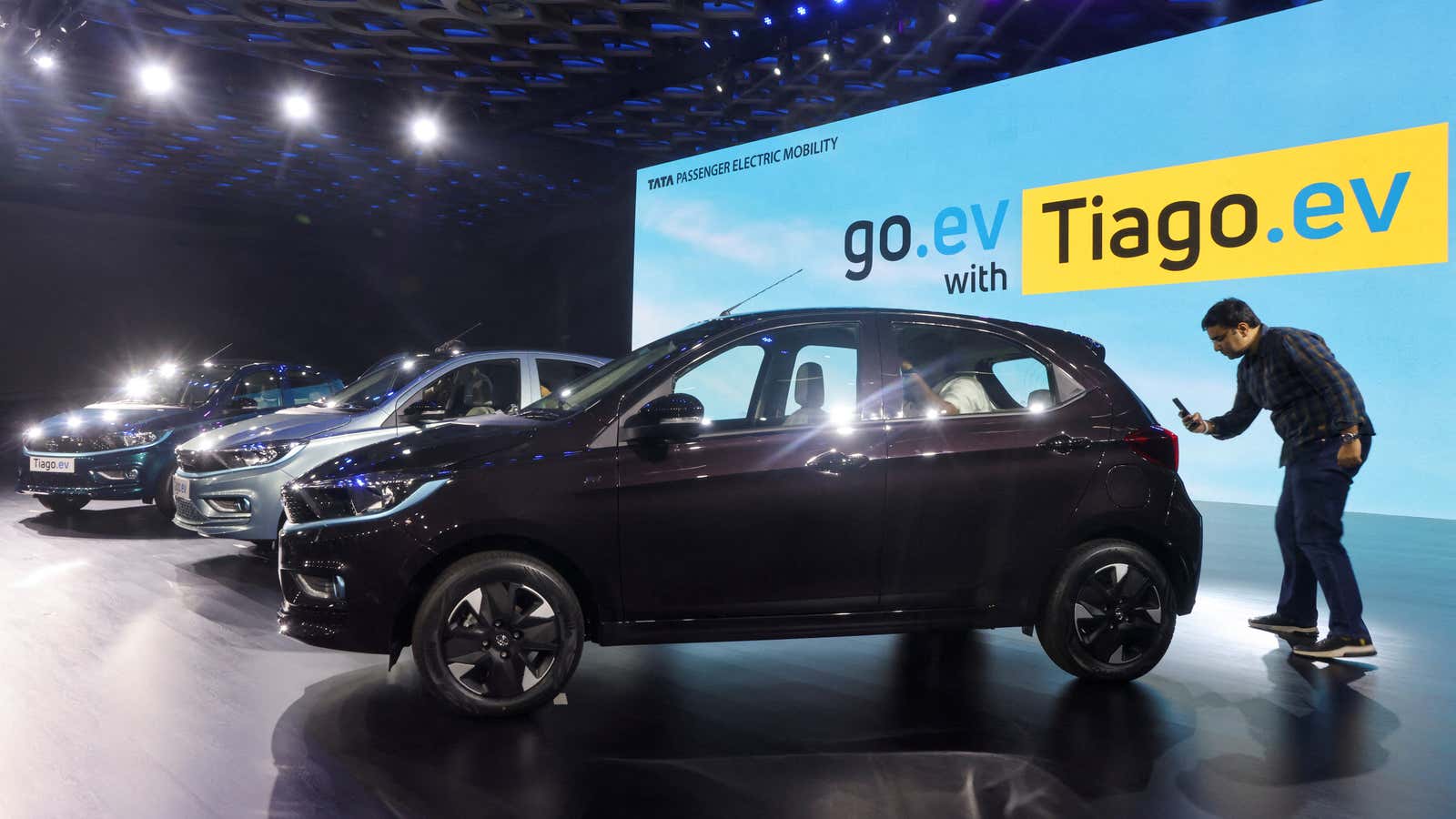The safety concerns over electric vehicles (EVs) in India are slowly fading away. Or so the recent excitement around India’s most affordable electric car suggests.
Tata Tiago EV, the latest Tata Motors product, has witnessed the highest number of bookings in a day for any electric car in the country. According to the company, Tiago received more than 10,000 online bookings across India in a single day.
Touting it as the most affordable electric car in India, Tata has set Tiago’s starting price at 8.49 lakh rupees (around $10,942).
Tiago, Tata’s first-ever hatchback electric, runs on a 26-kilowatt-hour high energy-density lithium-ion battery. It will compete with Maruti’s Swift Dzire and Honda’s Amaze, both non-electric cars in a similar price range.
A Tata EV faced a safety probe earlier this year
For a while, earlier this year, it seemed as if EVs were catching fire far too frequently for comfort. Most of these were two-wheelers, but in July, a Tata Nexon car burst into flames. There was no loss of life, but the Indian government ordered a probe into the incident.
Despite these incidents, industry players believed that these safety concerns will be short-lived. The Tata Tiago may be the car to drive the sector out of its surrounding pessimism.
Why are Indian EVs so expensive?
Indian EV experts have often emphasized that affordability will play a huge role in the success of any electric car in the country.
Prior to Tiago, an average electric car cost in India more than Rs 10 lakh. Tata’s Nexon, MG Motor’s ZS, and Hyundai’s Kona, for instance, are all priced between Rs 14 lakh and Rs 25 lakh. The high price tag is a result of the hitherto small scale of production and the cost of the battery, which makes up as much as 40% of the total price.
“The EV product is currently expensive because of a couple of reasons: one is due to the import of raw materials and the other is due to expensive batteries,” Ashwini Tiwary, co-founder and CEO of a Pune-based EV tech firm called Autobot India, told Quartz. “If we can take care of both the elements by manufacturing both of them domestically, then the pricing factor could be solved.”
The Tiago isn’t India’s cheapest electric car ever. That honor goes to Mahindra’s Reva—also India’s first electric car—which was once available at a starting price of Rs 3 lakh.
Launched in 2001, the Reva now has been discontinued by Mahindra because of waning sales. Although it did well on price, the Reva’s ultra-compact size worked against it. And at the time, the Indian government’s lack of clarity on EVs worked against the Reva as well, preventing it from taking off in the Indian market.
